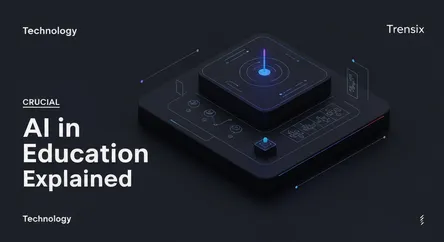Technology
AI in Education Explained

Discover how Artificial Intelligence is transforming education, from personalized learning paths to automated grading and AI-powered tutors.
What is it?
AI in Education uses artificial intelligence to enhance teaching, learning, and administration. This involves tools that create personalized learning paths for students, adapting to their unique pace. Examples include intelligent tutoring systems offering one-on-one support, automated grading software that saves teachers time, and platforms that identify at-risk students. The core idea is using smart technology to make education more effective and efficient for everyone.
Why is it trending?
The trend is fueled by a demand for personalized learning at a massive scale, which traditional models can't provide. Advances in machine learning have made AI tools more powerful and accessible, while the global shift to online learning has accelerated adoption. Schools are using AI to boost efficiency, gain insights from student data, and prepare learners for an AI-driven future. It offers a scalable solution for customizing education in diverse classrooms.
How does it affect people?
For students, AI can create a more engaging learning journey with instant feedback and tailored content. For teachers, it automates administrative tasks like grading, freeing them to focus on mentoring and complex instruction. However, it also raises concerns about data privacy, algorithmic bias, and equitable access to technology. It fundamentally re-evaluates the educator's role, shifting them from an information source to a facilitator of learning in a high-tech classroom.